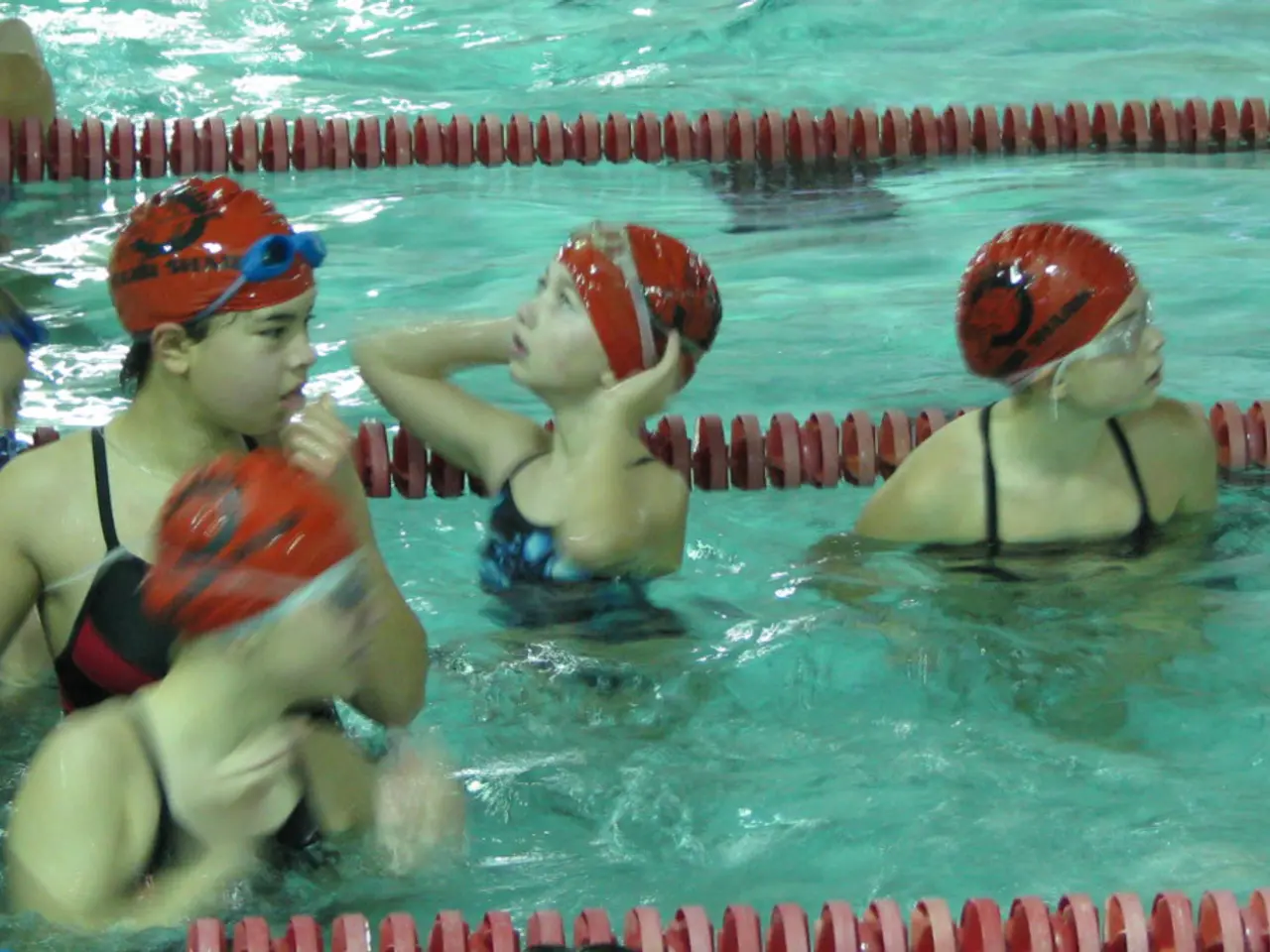Parents in Germany are accused by a swimming coach of being overly fixated on their smartphones, allegedly neglecting their children's training and progress.
In a concerning development, the German Life Saving Association has reported an increase in swimming accidents in 2024, with 411 unfortunate deaths recorded, a significant jump from the 2021 figure of 299. This alarming rise has prompted a call to action, focusing on improving pool safety and reinforcing parental responsibility.
Peter Harzheim, the President of the Federal Association of German Swimming Pool Attendants (BDS), has voiced his concerns about the rising number of accidents. He criticizes inattentive parents who are more engrossed in their smartphones than their children in swimming pools, describing this as a "plague" in swimming pools. Harzheim clarified that swimming pool attendants are not babysitters but aim to make the stay of bathers pleasant and ensure their safety.
In response to this situation, various measures are being implemented. The National Drowning Prevention Alliance (NDPA) promotes a "layered safety net" approach, which involves multiple safety measures such as barriers around pools, supervision, learning swimming skills, use of life jackets, and emergency preparedness. Public health campaigns also emphasize the importance of attentive adult supervision, as statistics show that in nearly 90% of child drownings, at least one adult was present but distracted.
Special attention is given to vulnerable groups such as young children and children with autism, who are at significantly higher drowning risk. Parents are urged to avoid misusing pool attendants as babysitters and to be personally attentive and vigilant, especially during peak drowning months like July. Education and public awareness campaigns encourage parents to create safe home pool environments and to ensure children have proper swimming lessons and water safety training.
The Federal Association of German Swimming Pool Attendants (BDS) is working to ensure the safety of bathers in swimming pools, emphasizing that pool attendants are trained for safety monitoring, not childcare. The CDC and health organizations support this stance, urging parents to take responsibility for their children's safety around water.
The New Osnabrücker Zeitung reported this increase in swimming accidents and deaths in 2024 on July 6, 2025. This layered approach recognizes that drowning is preventable with proper supervision and safety precautions, providing a comprehensive response by combining regulatory, educational, and behavioral strategies aimed at reducing drownings and improving pool safety.
- The National Drowning Prevention Alliance (NDPA) advocates for a "layered safety net" approach that comprises multiple safety measures, especially for vulnerable groups like children and children with autism, to prevent swimming accidents.
- Health organizations, including the Centers for Disease Control and Prevention (CDC), echo the statements of Peter Harzheim, President of the Federal Association of German Swimming Pool Attendants (BDS), urging parents to take personal responsibility for their children's safety around water, even while attending swimming pools focused on health-and-wellness, fitness-and-exercise, and sports.
- Amid the rising number of swimming accidents and fatalities in 2024, various initiatives inspired by the German Life Saving Association's report emphasize the importance of parenting responsibilities in ensuring the safety of children while they engage in other areas like science, health-and-wellness, fitness-and-exercise, and sports.




